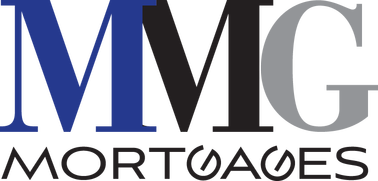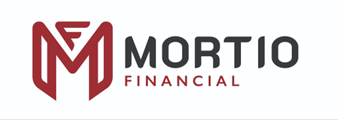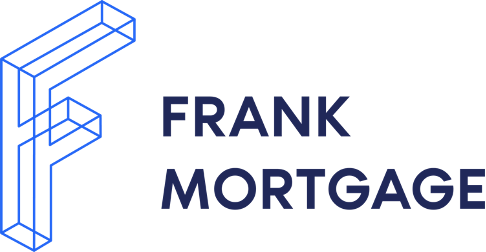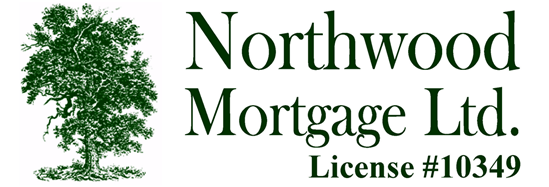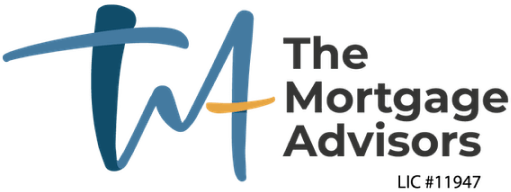Find the Best 2-year fixed Mortgage Rates in Canada
Compare the most current 2-year fixed rates from major banks, credit unions and mortgage brokers.
Rates are based on a home value of $500,000
Rates are based on a home value of $500,000
Rates are based on a home value of $500,000
Today's Best Mortgage Rates in Canada
Evaluate Canada's best 2-year fixed mortgage rates in one place. RATESDOTCAs Rate Matrix lets you compare pricing for all key mortgage types and terms.
Rates are based on an average mortgage of $500,000 and subject to change based on filter criteria.
Updated 12:44 on Jul 17, 2025| Placeholder |
Insured
The rates in this column apply to borrowers who have purchased mortgage default insurance.
This is required when you purchase a home with less than a 20% down payment.
The home must be owner-occupied and the amortization must be 25 years or less.
|
80% LTV
The rates in this column apply to mortgage amounts between 65.01% and 80% of the property value. The home must be owner-occupied and have an amortization of 25 years or less. You must have purchased it for less than $1 million. These rates are not available on refinances. Refinances require "Uninsured" rates.
|
65% LTV
The rates in this column apply to mortgage amounts that are 65% of the property value or less. The home must be owner-occupied and have an amortization of 25 years or less. You must have purchased it for less than $1 million. These rates are not available on refinances. Refinances require "Uninsured" rates.
|
Uninsured
The rates in this column apply to purchases over $1 million, refinances and amortizations over 25 years. More info on the differences between insured and uninsured rates.
|
Bank Rate
Bank Rate is the mortgage interest rate posted by the big banks in Canada.
|
|---|---|---|---|---|---|
| 1-year fixed rate | 4.99% | 4.79% | 4.79% | 5.59% |
5.49%
|
| 2-years fixed rate | 4.04% | 4.34% | 4.34% | 4.54% |
4.79%
|
| 3-years fixed rate | 3.87% | 4.09% | 4.09% | 4.24% |
4.29%
|
| 4-years fixed rate | 4.09% | 4.15% | 4.15% | 4.44% |
4.39%
|
| 5-years fixed rate | 3.91% | 3.89% | 3.89% | 3.91% |
4.09%
|
| 7-years fixed rate | 5.19% | 5.00% | 5.00% | 5.19% |
5.00%
|
| 10-years fixed rate | 5.24% | 5.24% | 5.24% | 5.29% |
6.09%
|
| 3-years variable rate | 4.40% | 4.30% | 4.30% | 4.40% |
6.35%
|
| 5-years variable rate | 4.04% | 4.04% | 4.04% | 4.05% |
4.25%
|
| HELOC rate | N/A | N/A | N/A | N/A |
N/A
|
| Stress Test | 5.25% | 5.25% | 5.25% | 5.25% |
N/A
|
Today's Best Mortgage Rates in Canada
Evaluate Canada’s best mortgage rates in one place. You can compare the most current mortgage rates and monthly payments from 175+ banks and lenders across Canada.
Rates are based on an average mortgage of $500,000 and subject to change based on filter criteria.
| Lender
|
Insured
|
Insurable
|
Uninsured
|
|---|---|---|---|
|
MMG Mortgages
|
3.99%
$2,627.39 / month
|
4.19%
$2,681.85 / month
|
4.14%
$2,668.19 / month
|
|
Mortio Financial Corp
|
3.99%
$2,627.39 / month
|
4.24%
$2,695.56 / month
|
4.14%
$2,668.19 / month
|
|
Frank Mortgage
|
4.09%
$2,654.55 / month
|
4.19%
$2,681.85 / month
|
4.09%
$2,654.55 / month
|
|
Northwood Mortgage Ltd.
|
4.14%
$2,668.19 / month
|
4.24%
$2,695.56 / month
|
4.24%
$2,695.56 / month
|
|
Innovation Federal Credit Union
|
4.39%
$2,736.87 / month
|
4.39%
$2,736.87 / month
|
4.39%
$2,736.87 / month
|
|
True North Mortgage
|
2.99%
$2,363.66 / month
|
2.99%
$2,363.66 / month
|
2.99%
$2,363.66 / month
|
|
The Mortgage Advisors
|
3.87%
$2,594.98 / month
|
3.87%
$2,594.98 / month
|
3.87%
$2,594.98 / month
|
|
Nesto
|
3.91%
$2,605.76 / month
|
3.91%
$2,605.76 / month
|
3.91%
$2,605.76 / month
|
|
MortgagestoGo
|
3.94%
$2,613.86 / month
|
3.94%
$2,613.86 / month
|
3.94%
$2,613.86 / month
|
|
Hypotheca
|
3.94%
$2,613.86 / month
|
3.94%
$2,613.86 / month
|
3.94%
$2,613.86 / month
|
|
One Link Mortgage & Financial
|
3.95%
$2,616.57 / month
|
3.95%
$2,616.57 / month
|
3.95%
$2,616.57 / month
|
|
The Police Credit Union
|
3.99%
$2,627.39 / month
|
3.99%
$2,627.39 / month
|
3.99%
$2,627.39 / month
|
|
Northern Birch Credit Union
|
3.99%
$2,627.39 / month
|
3.99%
$2,627.39 / month
|
3.99%
$2,627.39 / month
|
|
Monster Mortgage
|
3.99%
$2,627.39 / month
|
3.99%
$2,627.39 / month
|
3.99%
$2,627.39 / month
|
|
Sudbury Credit Union
|
3.99%
$2,627.39 / month
|
3.99%
$2,627.39 / month
|
3.99%
$2,627.39 / month
|
|
Mainstreet Credit Union
|
3.99%
$2,627.39 / month
|
3.99%
$2,627.39 / month
|
3.99%
$2,627.39 / month
|
|
City Wide Financial Corp
|
3.99%
$2,627.39 / month
|
3.99%
$2,627.39 / month
|
3.99%
$2,627.39 / month
|
|
East Coast Mortgage Brokers
|
4%
$2,630.10 / month
|
4%
$2,630.10 / month
|
4%
$2,630.10 / month
|
|
Prospera Credit Union
|
4.04%
$2,640.95 / month
|
4.04%
$2,640.95 / month
|
4.04%
$2,640.95 / month
|
Jump straight to...
- What is a 2-year fixed mortgage rate?
- Why are 2-year fixed rates becoming so popular?
- What causes changes in 2-year fixed rates?
- Bond yield vs average fixed rates in Canada
- History of 2-year fixed rate mortgages in Canada
- How do major banks price 2-year mortgages?
- 2-year fixed rate mortgage pros and cons
- 2-year fixed rate predictions
- Tips on getting a 2-year fixed mortgage
- Frequently asked questions about 2 year fixed rate mortgages
What is a 2-year fixed mortgage rate?
A 2-year fixed mortgage rate is a mortgage where the interest rate, and your monthly repayments, stay the same for two years. In return for paying a slightly higher interest rate than on variable rate mortgages you get the peace of mind of a locked-in rate.
Current 2-year fixed mortgages are popular for many reasons, which include:
- The rate is lower than other terms
- They don’t expect to have a mortgage beyond a 24-month period
- It allows for re-finance flexibility without penalty
- If they think variable rates will improve over the next year
For the risk averse person, a 2-year fixed mortgage rate in Canada allows a borrower to avoid risk of a rate increase during the term of the mortgage. However, 2-year fixed mortgage rates offer little rate protection in rising-rate environments compared to longer terms.
- More frequent renewals: While not as bad as a 1-year term, two years can still fly by quickly. That means you’ll need to spend additional time renewing (about 3-6 hours if you need to change lenders for a better deal). It can also mean added switching costs if your existing lender is not competitive.
- More expensive than variables: That’s true most of the time. And it’s particularly true when the Bank of Canada is cutting rates. The one exception is when financial crises shrink variable-rate discounts. In that particular case, short-term fixed rates can be temporarily lower than variables.
Why are 2-year fixed rates becoming so popular?
2-year fixed mortgage rates in Canada have grown in popularity over the past few years. While still not the most popular mortgage options, they represent a growing sector of the industry. Why?
- 2-year fixed mortgage rates offer flexibility from being locked-in for a long period of time (if you think rates will decrease or perhaps you may want to sell your home)
- 2-year fixed rates in Canada provide peace of mind in an environment where mortgage rates have been increasing
Current 2-year fixed mortgage rates are comparable to longer term 4 and 5-year fixed mortgages. Locking in at a short-term offers the reassurance that your mortgage payments will not rise with the current Bank of Canada decisions but also allows you to be flexible and make changes should rates fall again in the not-so-distant future.
What causes changes in 2-year fixed rates?
2-year fixed mortgage rates in Canada, like all interest rates, follow government bond yields, except in this case they follow 2-year government bond yields.
Bond yield is a way of measuring the annual return on a bond investment. A bond's yield is expressed as a percentage. At the time of issuing, each bond comes with a face value and what is called a coupon rate, a fixed interest amount that is paid. Then when bonds are bought and sold on the open market, they may sell for above or below the face value.
Banks are quicker to raise their fixed mortgage rates and slower to lower them in relation to bond yield movements. To stay solvent, they can’t be too reactive to changing market conditions.
Bond yield vs average fixed rates in Canada
As inflation has been steadily rising, so have interest rates to help slow demand and bring prices down. As a result, bond yields have been steadily climbing as interest rates have been rising since late spring 2022.
Bond prices have an inverse relationship with mortgage interest rates. As bond prices go up, mortgage interest rates go down and vice versa. This is because mortgage lenders tie their interest rates closely to Treasury bond rates.
When bond interest rates are high, as they are becoming now, the bond is less valuable on the secondary market. This causes mortgage interest rates to rise. The value of each bond goes up when bond interest rates fall again. This causes mortgage lenders to lower their rates. However, we are still in a situation of rising interest rates and bond yields for the time being.
History of 2-year fixed rate mortgages in Canada
Discounted 2-year fixed rates are currently at their lowest level in more than a decade.
They began the decade at around 2.75% and gradually trended downwards to just above 2.00% by 2016-17.
But in just the last three years, 2-year fixed rates reached highs of more than 3.00%. Compare that to nationally available discounted 2-year fixed rates of just 1.59% (for default-insured mortgages) and 1.84% (for uninsured mortgages), as of fall 2020.
How do major banks price 2-year mortgages?
All fixed-rate mortgages are influenced by the bond market. Mortgage lenders invest in bonds and mortgages for profit. The profits are then recycled to purchase more bonds and issue more mortgages. Here’s a more comprehensive list of the sources lenders rely on to finance mortgages:
- Bank deposits
- Mortgage-backed securities
- Deposit notes
- Canada mortgage bonds
- Covered bonds
- Five-year swaps
- Investor purchases
To figure out what interest rate to offer on a fixed-rate mortgage, lenders look to the interest they’re earning on bonds.
Bond prices have an inverse relationship with mortgage interest rates. That means when bond prices go up, mortgage interest rates go down and vice versa.
During the first two years of the pandemic, Canada’s economy expanded. Consumer demand for goods (including houses) was so high it caused prices and inflation to rise. In 2022, the Bank of Canada began an aggressive rate increase strategy to help bring demand, and ultimately inflation, down.
The Bank of Canada has been raising overnight rates for banks as part of its strategy, and it’s affecting bond yields. The interest offered on bonds is going down, therefore, mortgage lenders are increasing rates on mortgage loans.
2-year fixed rate mortgage pros and cons
Pros
These are some of the advantages of a 2-year fixed mortgage:
- Lower rates compared to longer terms: Shorter terms often offer better pricing compared to longer terms. In the case of one-year rates, they can be a decent discount compared to other short terms, such as two and three years. They’re also a great alternative to a floating rate when variable discounts are small by comparison, as was the case in spring/summer 2020.
- Less chance of paying prepayment penalties: For those who are unsure about their near-term life plans, locking into a longer fixed term can result in significant penalties should you need to break your mortgage early. With a one-year term, the odds of needing to break your mortgage before the end of the term are significantly reduced.
- Good for those who only need a short-term mortgage: A two-year term can be ideal if you only need a mortgage for roughly 24 months. Typical examples include property flips, credit rehabilitation and people with short remaining amortizations.
- Those who expect rates to fall within 12 months: A 2-year fixed mortgage can be a great “placeholder” term for borrowers who expect mortgage rates to fall in the next couple of years. A two-year term allows them to shop the market in just 24 months’ time. This is especially useful when variable-rate discounts are historically small (e.g., prime – 0.25% instead of prime – 1.00%).
Cons
The following are some of the potential drawbacks of choosing a 2-year fixed mortgage:
- Little protection against rate hikes: If rates jump, you’re not protected as you would be with a longer fixed term.
- Renewal hassle: Many people choose slightly higher rates for a longer term, such as the five-year, in part simply to avoid the perceived hassle of renewing their mortgage so often. A two-year term may be a good one-off option depending on your circumstances, but choosing one-year terms regularly can indeed become a headache at renewal time.
- Switching costs: If you opt for a short term such as the 2-year fixed—particularly for consecutive terms—you are more likely to face switching costs if you end up changing lenders frequently.

2-year fixed rate predictions
If you want to try and guess the trend for 2-year fixed rates, you can do so by watching Canadas 2-year Treasury bill yield.
Note that this doesn't yield a forecast for future rates, but over the long term, 2-year fixed rates do track the 2-year Treasury bill yield fairly closely.
Inflation continues to be high, and the Bank of Canada has indicated there may be more interest rate hikes ahead. With increased rates comes higher less demand for bonds/treasuries, ultimately dropping the price of bonds and raising interest rates, once again. There will be one more interest rate announcement in 2022 by the Bank of Canada on December 7.
Tips on getting a 2-year fixed mortgage
For those choosing a 2-year fixed rate, here are a few tips to get the most out of this relatively unpopular short-term product:
- Keep in mind that you can lock in your renewal rate in just 20 to 21 months, given that most lenders offer 90- to 120-day rate holds. Starting the renewal process early always affords you more options compared to leaving it to the last minute.
- The majority of lenders don’t pay legal and appraisal costs if you’re switching into a 2-year mortgage. That’s typically a benefit offered on terms of three years or more. However, some lenders do, including most of the top banks. You’ll need to contact the lender directly to confirm what costs they cover.
- To qualify for a 2-year fixed mortgage, you generally need to prove you can afford a payment based on the “stress test” rate – which is the greater of:
- the Bank of Canada’s posted 5-year fixed rate
- This is also referred to as the “benchmark rate” and “minimum qualifying rate” OR the contract rate plus two percentage points.
- You may be able to get around having to qualify under the stress test if you’re applying through certain credit unions.
- If you’re planning two take advantage of lower 2-year fixed interest rates before converting into a longer term at a later date, beware that many lenders offer inferior rates to those converting to longer fixed terms. Unlike a new mortgage shopper who has numerous options at their disposal, lenders know you’re a captive client in this situation and that your options are limited. Hence, you should be prepared to switch lenders when you go to lock in long-term.
- Remember that just 1 in 14 Canadian borrowers opt for a 2-year fixed, on average. There’s often a good reason why the masses avoid particular mortgage terms.
Frequently asked questions about 2 year fixed rate mortgages
How can I find the best 2-year fixed mortgage rate?
Finding the best current 2-year fixed mortgage rate in Canada starts with comparison shopping. RATESDOTCA is your one-stop shop that allows you to compare the best rates in the easiest way possible. All major banks, credit unions and mortgage brokers are at your fingertips and ready to help once you’ve decided who you want to work with.
What happens at the end of a 2-year fixed mortgage?
Much like any other mortgage term, you will need to renegotiate or find new financing terms for a new mortgage. You may choose another 2-year fixed mortgage rate should that satisfy your short-term lending needs, or if you’ve decided to commit for longer term, you may choose a longer-term mortgage rate. It all depends on your needs, and the cost of borrowing, at the end of your 2-year term.
Can you refinance a 2-year fixed mortgage?
A mortgage refinance can be done at any time, not just at the end of your term. You can take out money to be used for things such as debt consolidation. While you will be charged penalties for refinancing before your term is up, you can still refinance at the end of your term. Keep in mind that over a short term, interest rates can fluctuate, especially in today’s market climate.
What is a mortgage rate lock?
A mortgage rate lock allows you to reserve an interest rate for a set period while renewing, refinancing or applying for a mortgage. Mortgage rate locks give prospective homeowners the ability to get the best mortgage rate available, in the event that interest rates increase.



